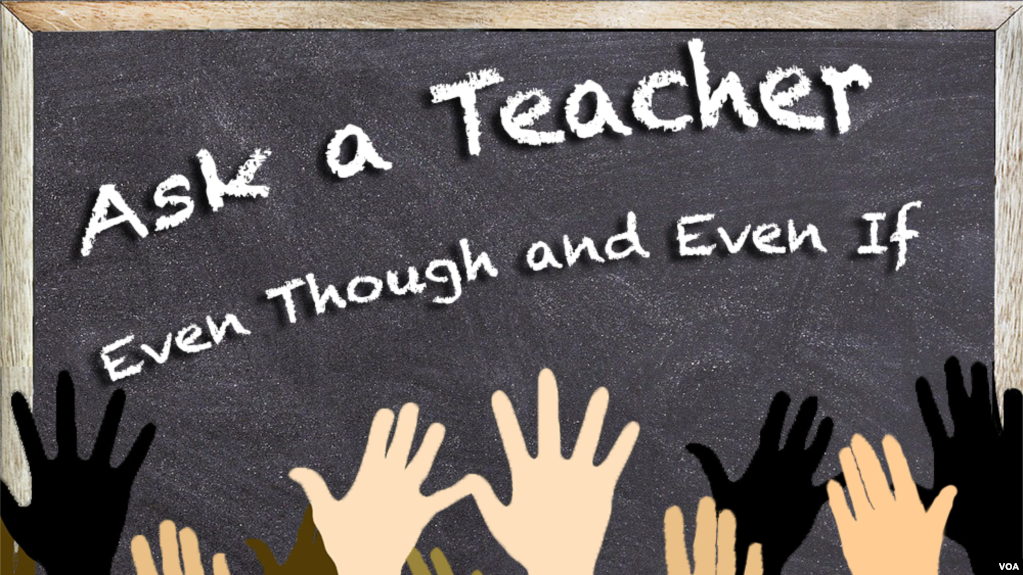
Hello! This week on Ask a Teacher we answer a question from a reader in China.
Question:
There is a question I’ve been thinking about for a long time. What is the difference between “even though” and “even if?” Could you tell me the answer? Thank you.
Roy, China.
Answer:
Dear Roy,
Thanks for writing to us. You asked a question that many learners of English have. Let us begin with “even though.”
Even though
“Even though” comes before a statement of fact. It has a similar use to the word “but.” Here are examples about travel to your country, Roy:
I want to travel to China, but I cannot because of COVID travel restrictions.

Now, see how you can say the same thing with the expression “even though:”
Even though I want to visit China, I cannot because of the pandemic.
Compare these statements with even though and the expression “despite the fact that.”
Despite the fact that snow fell on Monday, our schools opened.
Our schools opened Monday even though there was snow.
In both statements, it is true that snow fell Monday and although our schools often close due to snow, they did not on this day.
Even if
Grammar expert Betty Azar says that statements with “even if” are similar to ones with “whether or not.” “Even if” tells us that there is a certain condition that does not matter. Compare these examples.
I will take the dog for a walk even if it is raining.
Whether or not it is raining, I will take the dog for a walk.

For both statements, the rain is possible, but may not happen.
You will sometimes find that “even if” describes an unreal situation.
Even if I could travel to Mars, I would not go there.
I cannot attend the party, even if you could change the time.
In these examples, it is impossible to travel to Mars and the time of the party cannot be changed. However, the speakers say that in any case, they are not interested in traveling to Mars and are not able to attend the party.
I hope this helps you understand the difference between “even if” and “even though,” Roy.
What question do you have about American English? Send us an email at learningenglish@voanews.com
And that’s Ask a Teacher.
I’m Jill Robbins.
Dr. Jill Robbins wrote this lesson for VOA Learning English.
__________________________________________________________________
Words in This Story
despite – prep. without being prevented by (something) — used to say that something happens or is true even though there is something that might prevent it from happening or being true
Do you have a question for the teacher? We want to hear from you. Write to us in the Comments Section.